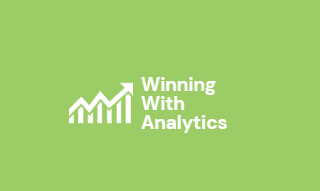
The Times ran an editorial last Saturday (‘Predictable Mistakes’, Times, 3 Feb 2024) that was highly critical of economic forecasting particularly in the UK, pointing out that ‘among leading economies, British forecasters have distinguished themselves as the least prescient of the lot.’ A harsh assessment indeed and one with very serious consequences for all of us since, as the editorial went on to say, ‘bad modelling lays the ground for bad policymaking affecting investment strategy and monetary policy.’
The Times editorial follows two recent columns in the Sunday Times which were also highly critical of economic forecasting. Dominic Lawson (‘Forecasts have one tiny flaw: they’re useless’, Sunday Times, 31 Dec 2023) compared economic forecasters to the augurs in Ancient Rome, a sort of priesthood distinguished by their supposed skills in predicting an uncertain future based on natural signs such as the behaviour of birds to determine whether the gods approved or disapproved of a proposed course of action. For “natural signs” read “econometrics”, but otherwise there is little difference in mindset – an overwhelming confidence, bordering on arrogance, in their superiority to the rest of us when it comes to transcending uncertainty.
Dominic Lawson, who is the son of Nigel Lawson, the former Chancellor of the Exchequer, approvingly quoted his late father’s very perceptive comment on the fundamental problem with economic forecasting and economics in general being the illusion that because economic outcomes can be quantified, economic behaviour can be reduced to a set of mathematical equations. But, as Dominic Lawson argues, quantifiability does not mitigate the uncertainty inherent in economic behaviour. Economics is not physics; it deals with the irrationalities of economic behaviour not the behaviour of things that follow the laws of physics. And matters are made worse by the poor quality of much economic data, so much so that economic forecasters (and, hence, policymakers) are essentially flying blind. Lawson concludes his column with the rather damning comment that the time and money spent on forecasting human behaviour is a ‘monument to gullibility’. It reminds me of Deirdre McCloskey’s view that economics and econometrics are at times no more than the proverbial “snake oil”, sold by their purveyors as a cure-all but with little in the way of substantive evidence to support the marketing claims.
Economists flying blind is the concern of Irwin Stelzer in his column, ‘Forecasting in the age of uncertainty’ (Sunday Times, 14 Jan 2024). Stelzer highlights the uncertainties in supply chains and how the interdependencies are transforming local and regional problems into global problems. It is a “butterfly effect” on a grand scale. Stelzer reminds us of the importance of Knight and Keynes as two economists who understood the difference between risk and uncertainty, and, crucially, recognised that investors fear uncertainty, not risk.
I am reminded of a recent discussion with a senior economist of many years standing on the need for economics to embrace data analytics more thoroughly. In particular, as I have argued in recent posts, data analytics is data analysis for practical purpose and the necessary mindset for practical purpose demands a recognition of the importance of context. Although there are important differences between the approaches of Knight and Keynes (and I largely follow Keynes’s approach), both rejected the notion that uncertainty could be reduced to a well-defined probability distribution for a random process with a known, stable structure akin to the roulette wheel. The senior economist, who I would consider to be a radical economist strongly influenced by the ideas of Marx rather than modern mainstream economic theory, was very dismissive of my proposition that economics needs more data analytics. His response was that what economics needs is more sophisticated econometrics, not data analytics. Perhaps I should not have been surprised that a Marxist economist would believe in the predictability of economic forces. I suspect that Bernanke’s report on the forecasting capabilities of the Bank of England will reach a similar conclusion and argue for more sophisticated econometrics as the cure-all. But greater sophistication in econometric methods will not generate greater forecasting accuracy. Ultimately if there is no fundamental change in the mindset of economists and economic forecasters as regards the nature of uncertainty, there will be no change in the practical value of economic forecasts and policy advice. It is these issues that I intend to investigate in more detail in the coming weeks in a planned series of posts entitled ‘Risk, Probability and Uncertainty’.
Other Related Posts
